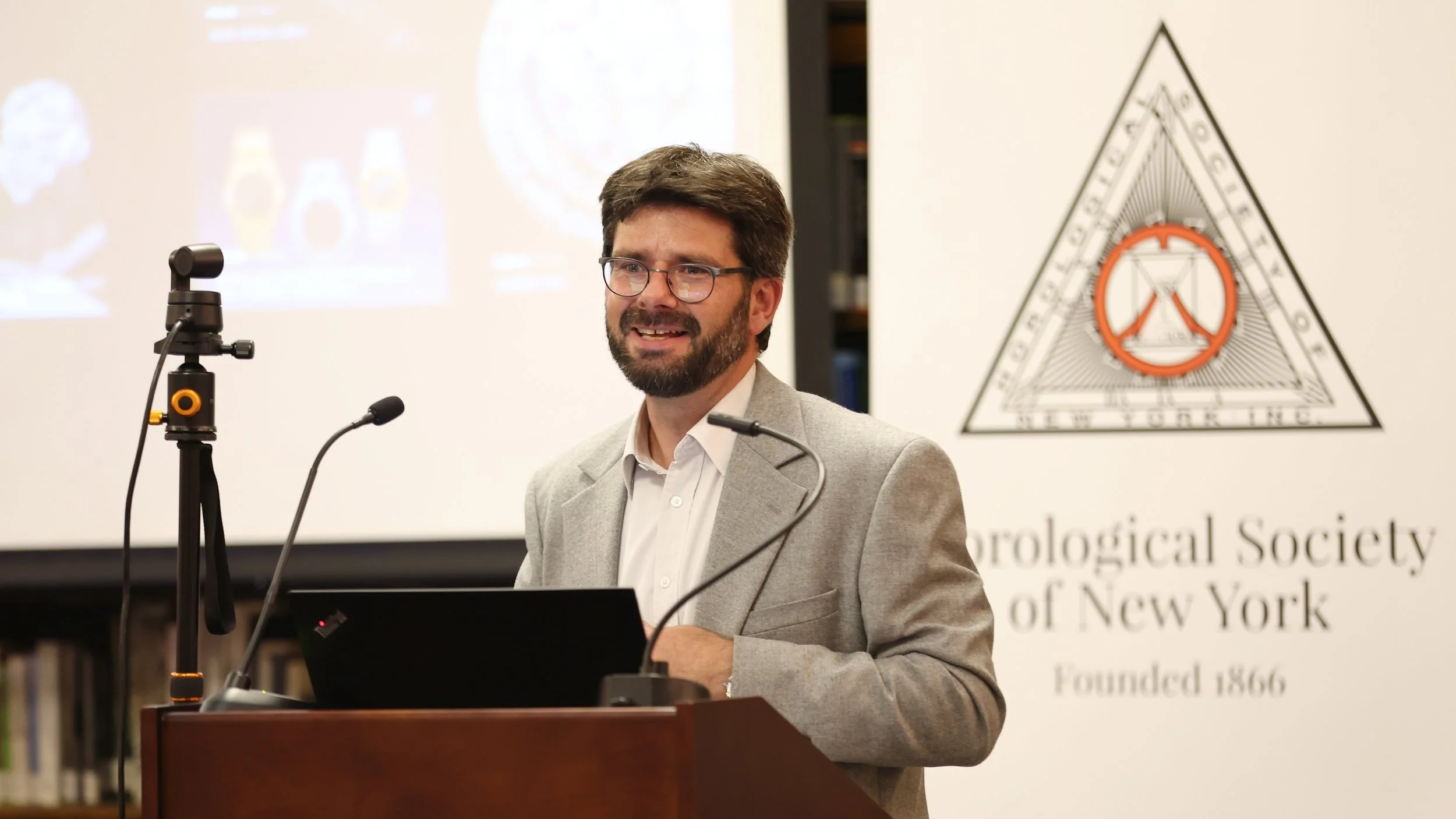Meeting Recap: The Genesis of the Royal Oak: From Iconoclast to Icon
Sébastian Vivas, Heritage & Museum Director at Audemars Piguet (Le Brassus, Switzerland)
June 6, 2022
Video recordings of lectures are available to members immediately (using your membership password), and to the general public with a two-month delay.
For the June 2022 lecture at the Horological Society of New York (HSNY), Sébastian Vivas, Heritage & Museum Director at Audemars Piguet, lectured on the legacy of the iconic Royal Oak.
After two generations of the founders’ families running the Audemars Piguet brand, Georges Golay transformed AP from a small workshop of 28 people into a modern company of 80 people. However, it was Golay’s call to the independent designer, Gérald Genta, that the genesis of the Royal Oak was created. Golay requested a sketch of a sports watch by the next day. Genta’s sketch showed the flow of circular, rounded rectangle, and octagonal elements; along with the positioning of the eight screws on the bezel. Vivas shared that the subsequent drawings of the Royal Oak consistently show non-alignment of the screws, and that the screws are attached to the bezel from the back (not the front).
Certain structures of the Royal Oak highlight its distinctive elements:
Case / Case Back
The case was created around the LeCoultre Cie Cal 920 movement that measured 28 mm. Therefore, it was oversized by functional design.
The caseback is octagonal and curved
The two pieces (combined bezel / case and case back) challenged the ‘monorail’ description since actual monorail timepieces are comprised of three separate pieces: bezel, case, case back.
Bracelet
Highly complicated due to the difference of sizes with the links and studs
There are no lugs per se due to the innovation and newness of the design
It also the first folding clasp at AP
Dial
Tapisserie pattern comprised of vertical and horizontal lines
Structured by small pyramid-like shapes
Every dial of the Royal Oak is unique due to the difference in the size and depth
Origin of the name / Logo
Various names were considered such as: Safari, Grand Prix, Diane, Surfrider, Colorado, Kilimanjaro, Canyon, Oxford, Ascot and Yale
It is known that the name came from Carlos de Marchi when he referred to the Royal Oak vessels of the Royal Navy
It is the first piece that has its name and logo engraved on a watch
Since Gérald Genta already left AP, the logo was not shown on the press kits
Other aspects of the Royal Oak were adding a number for each model and each material to give an air of exclusivity for the client; along with a dedicated promotional campaign since it was necessary to explain the high cost of a steel watch. All in all, the Royal Oak is a masterpiece for Gérald Genta and Audemars Piguet.
HSNY thanks Sébastian Vivas for his fascinating lecture!


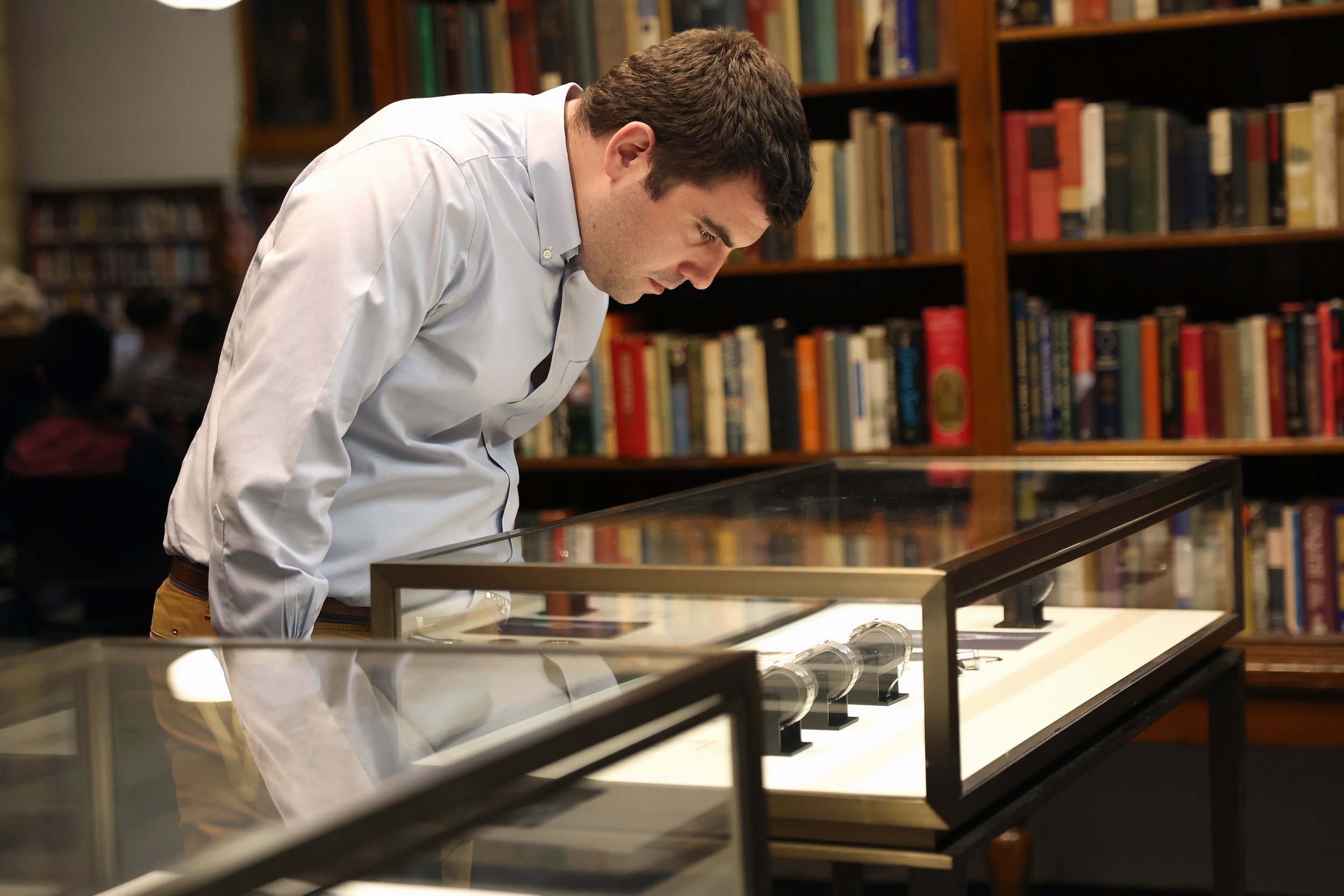
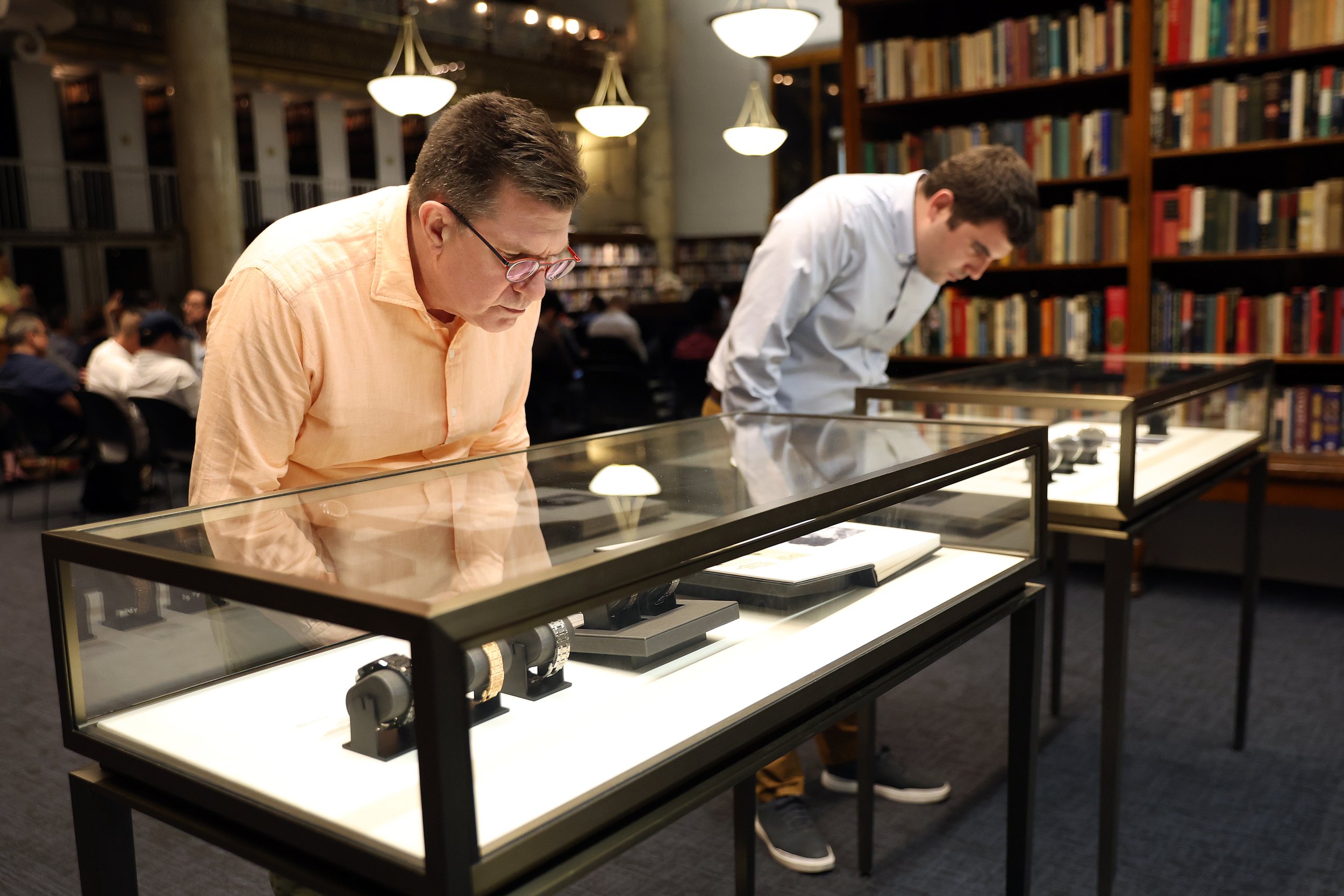






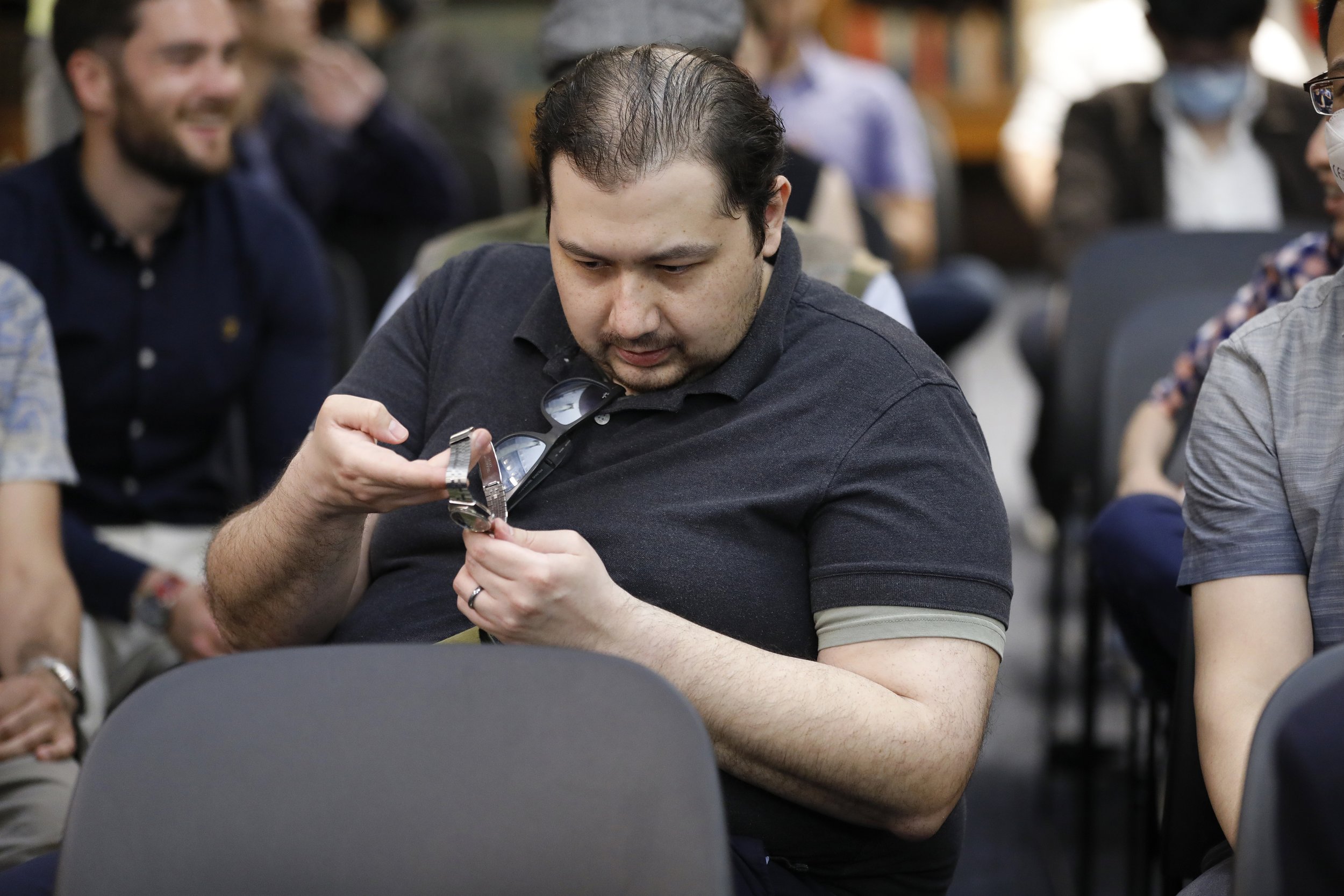
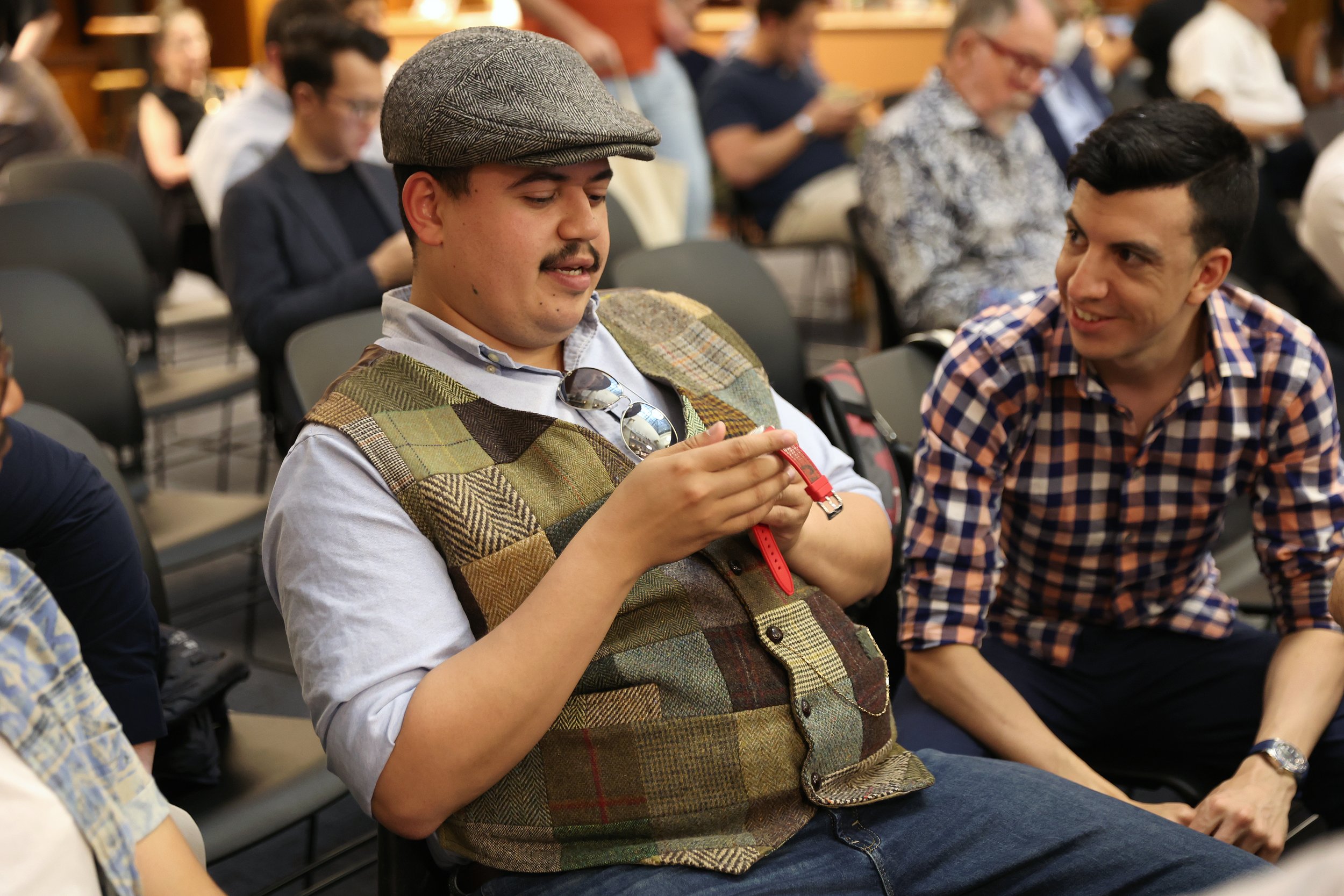





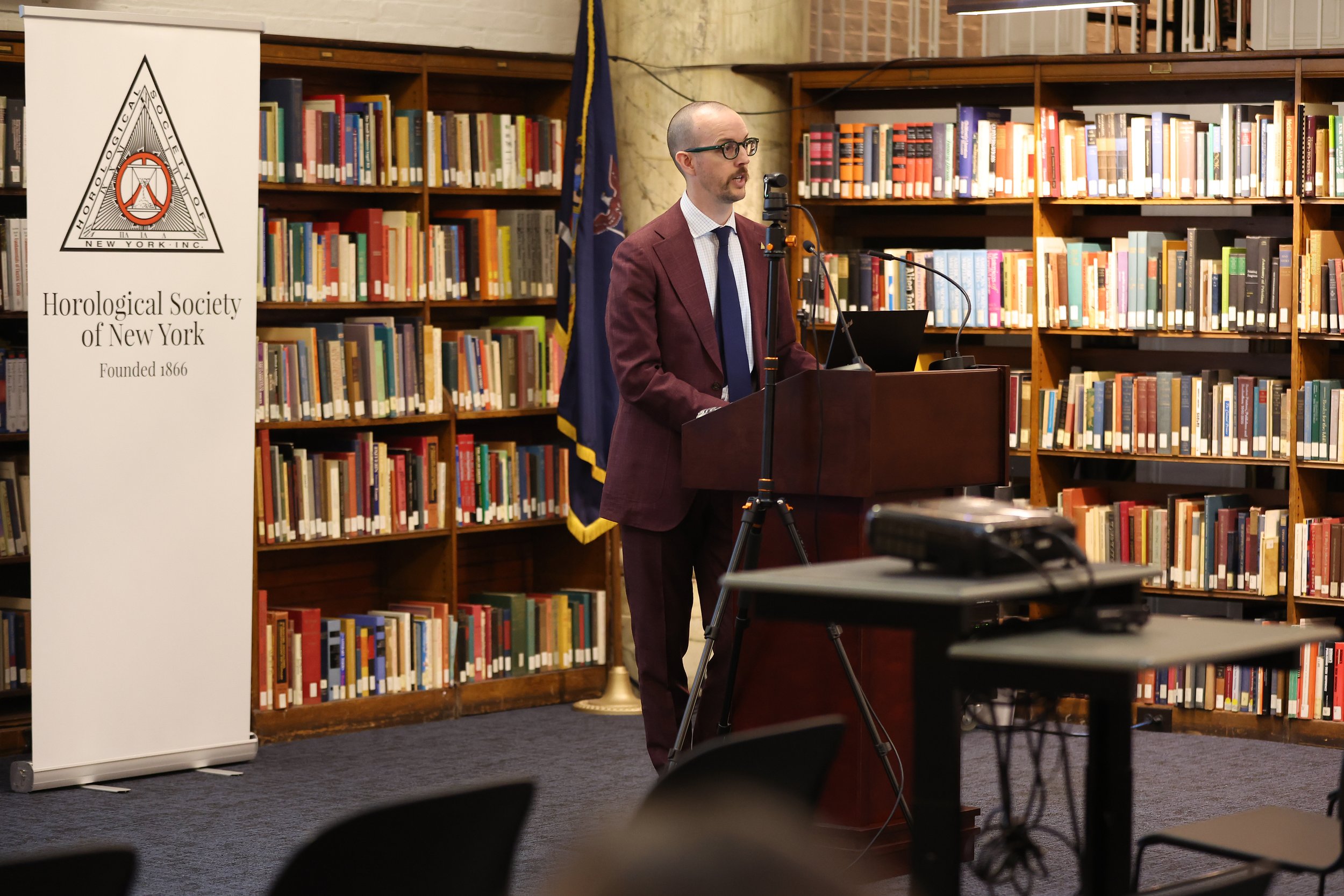











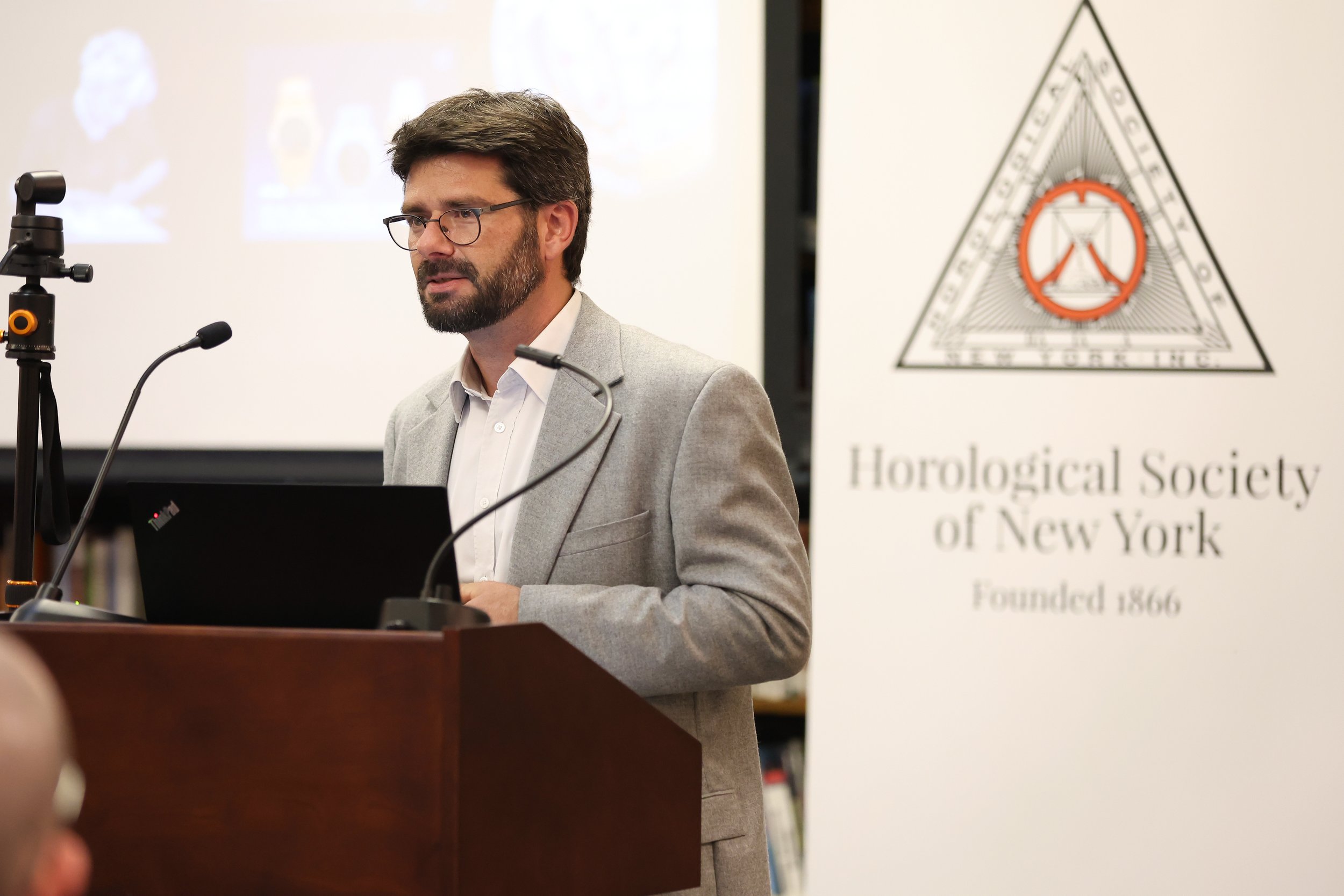






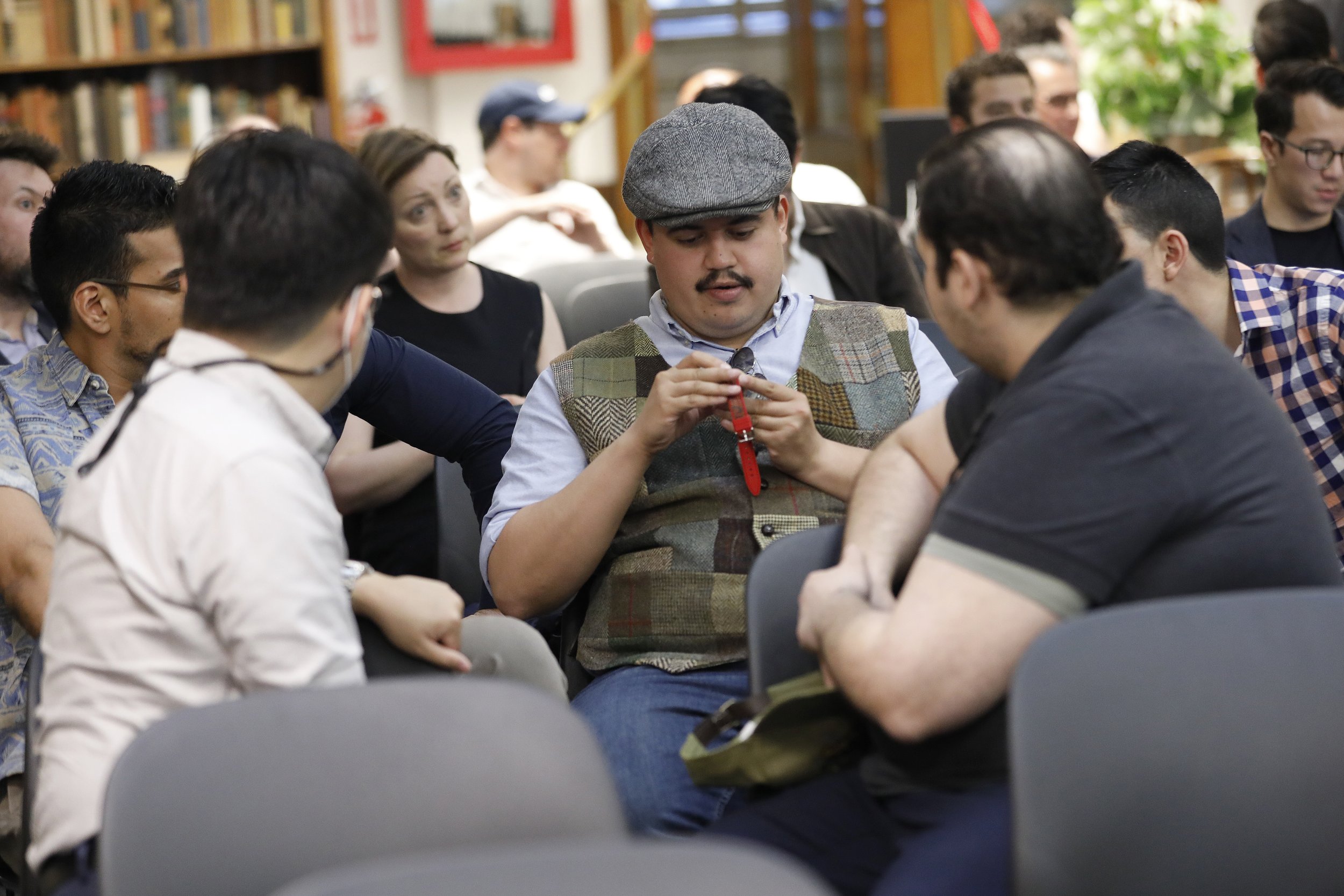

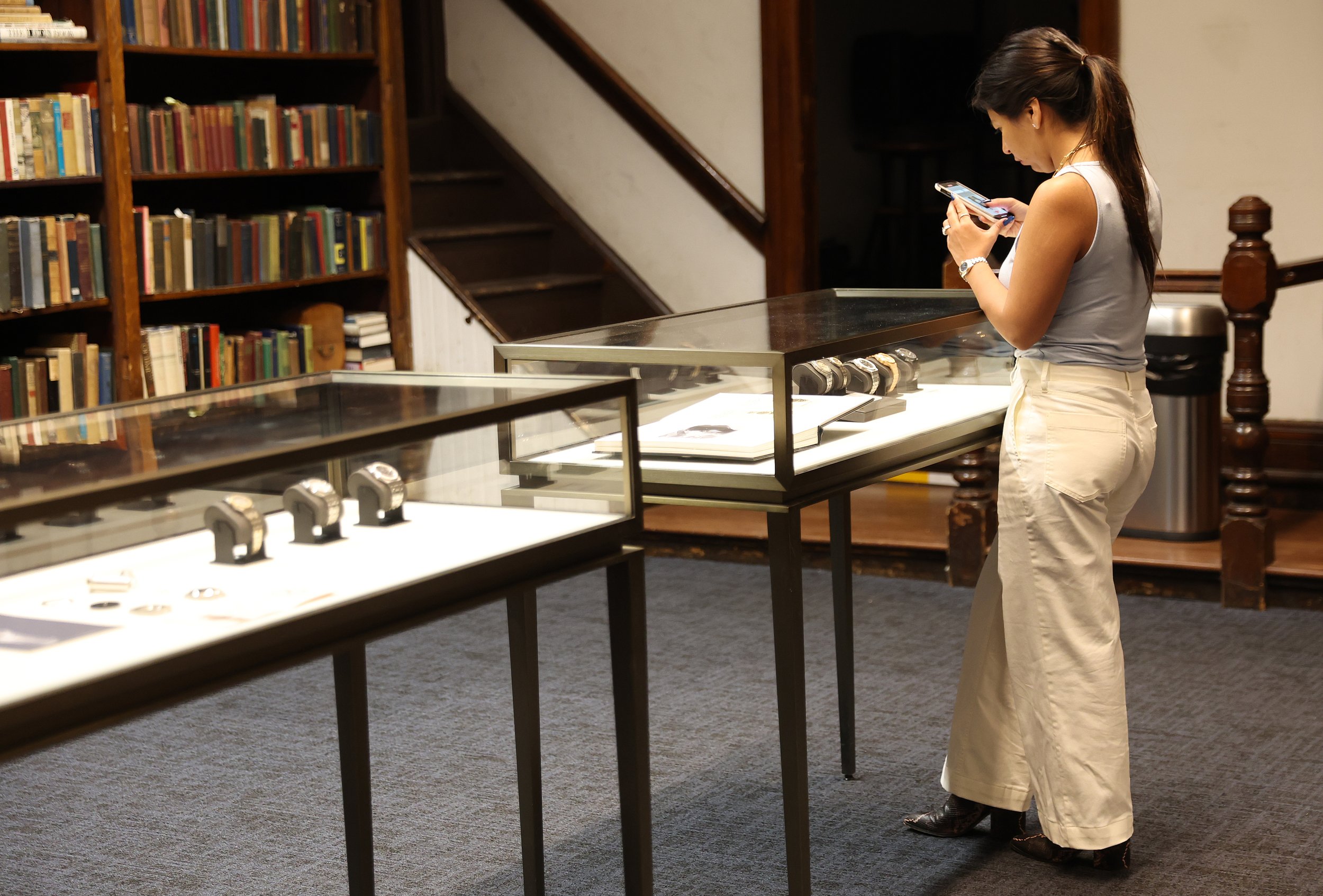










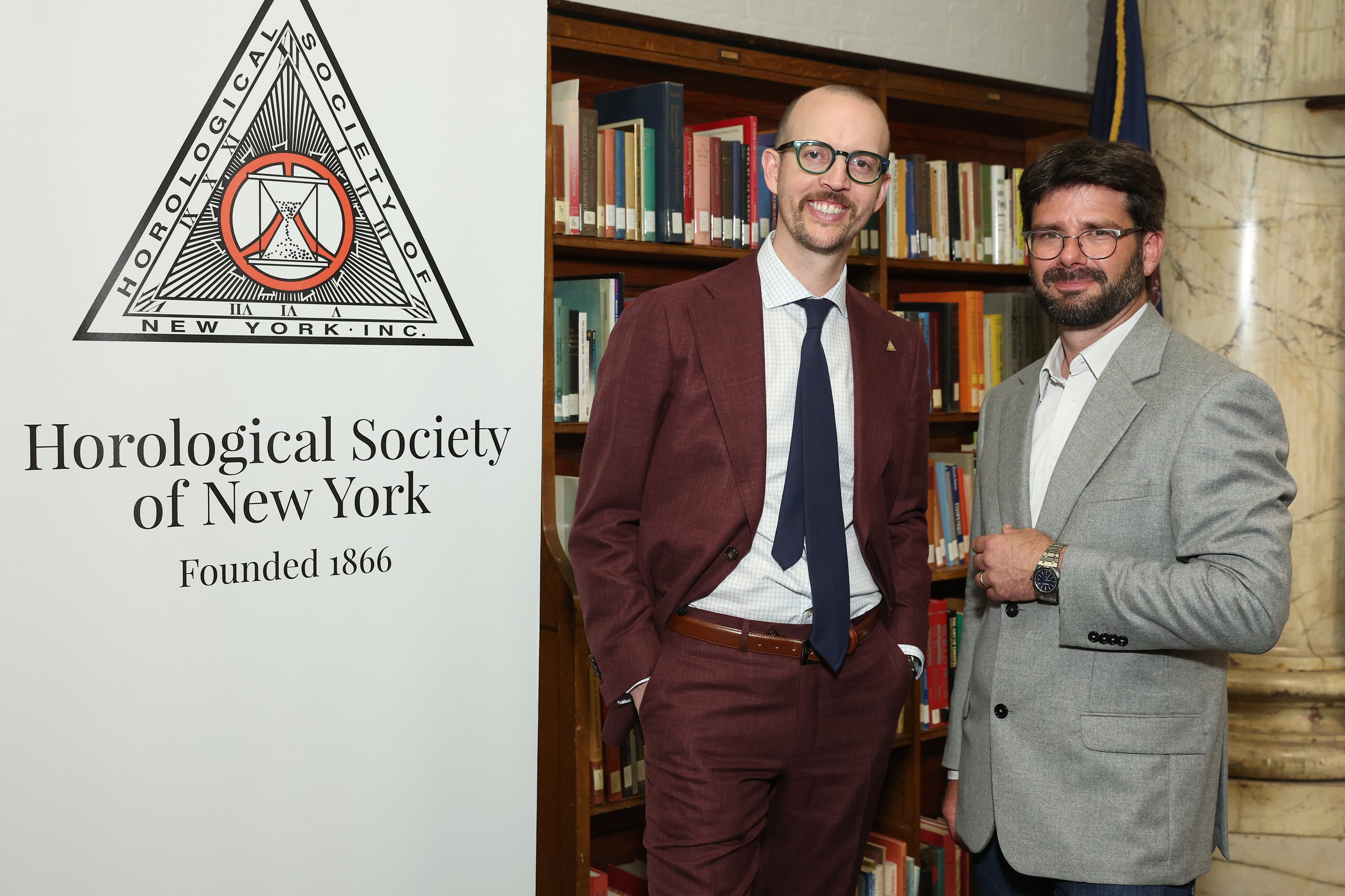
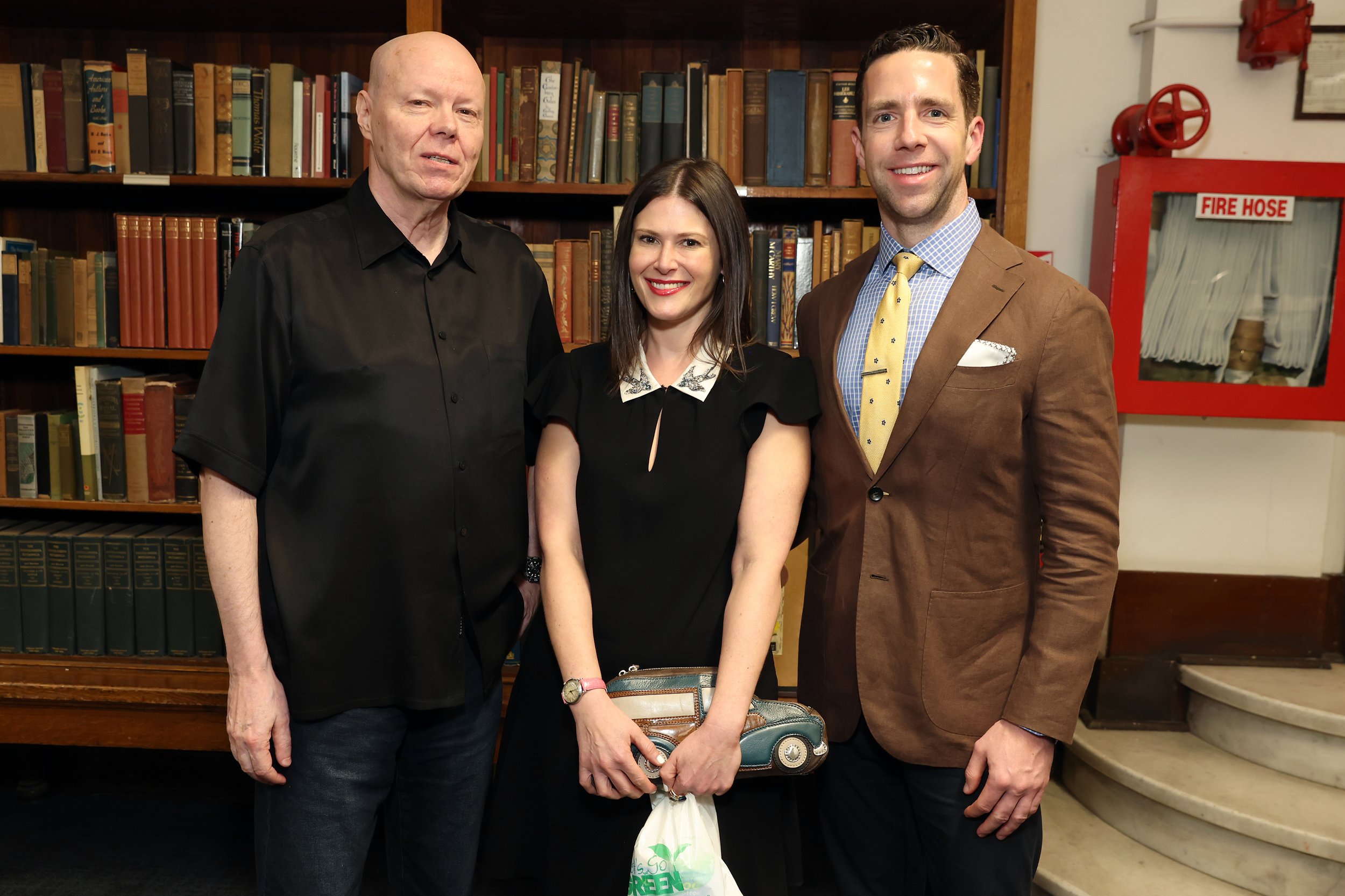

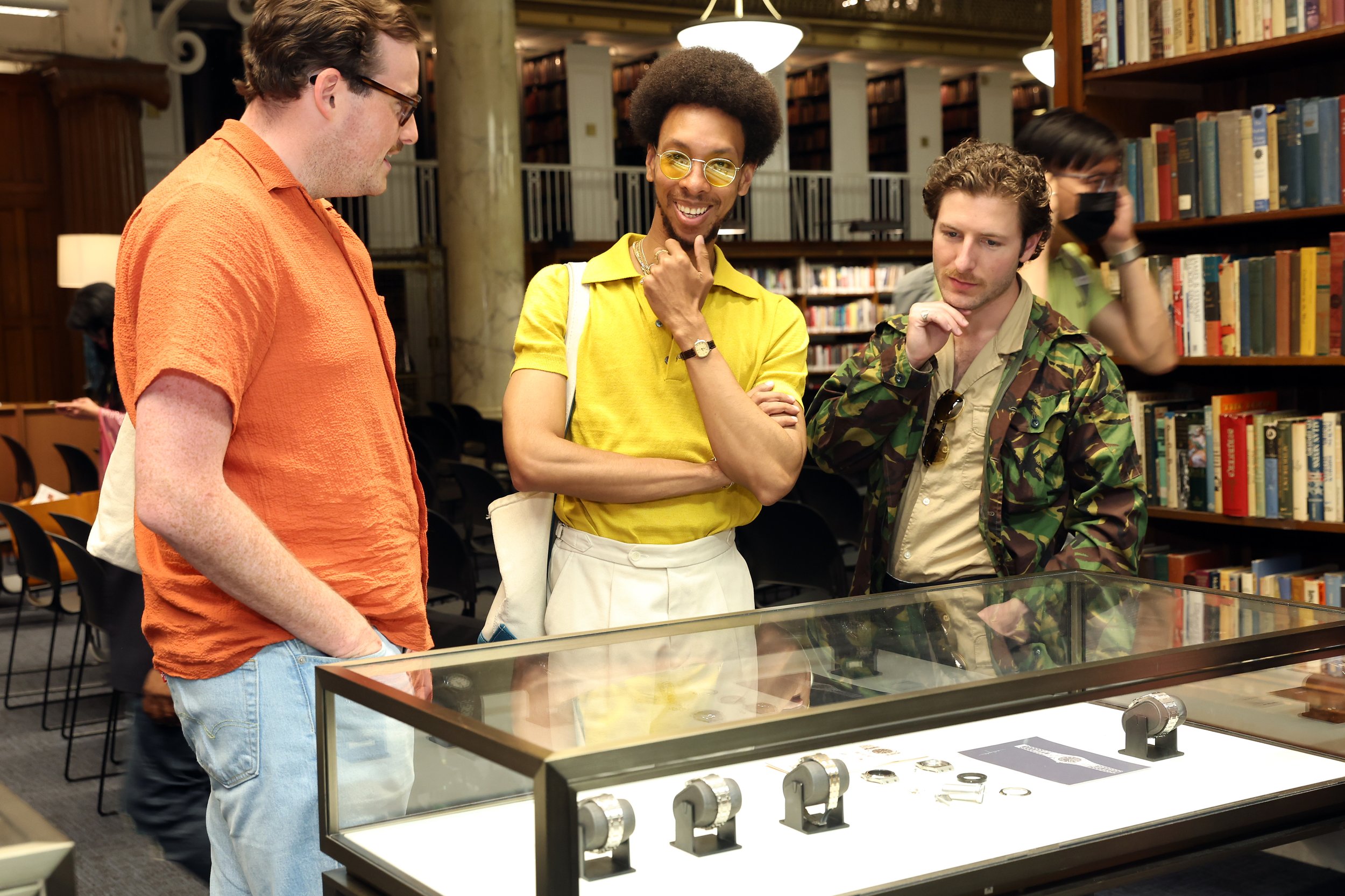
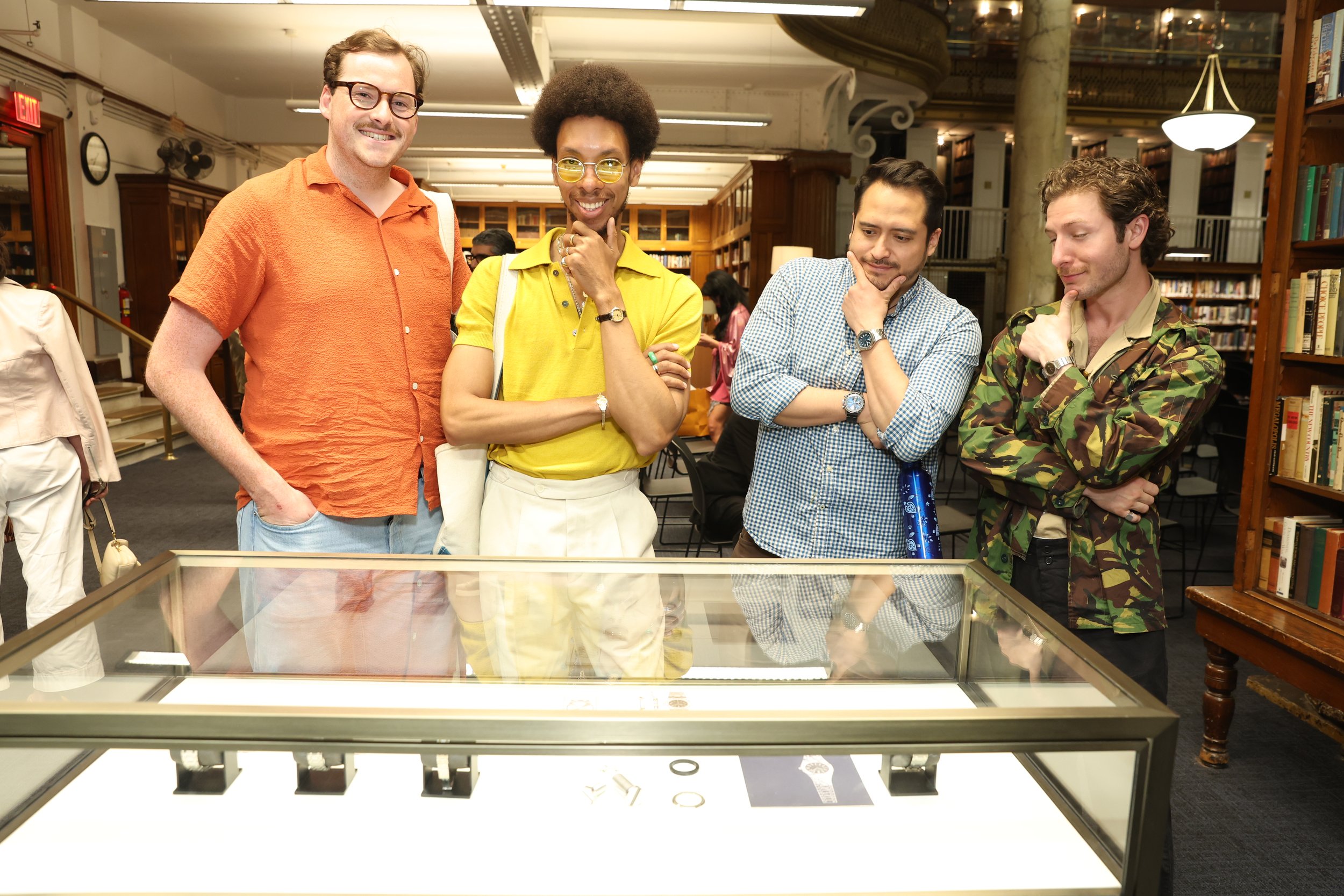

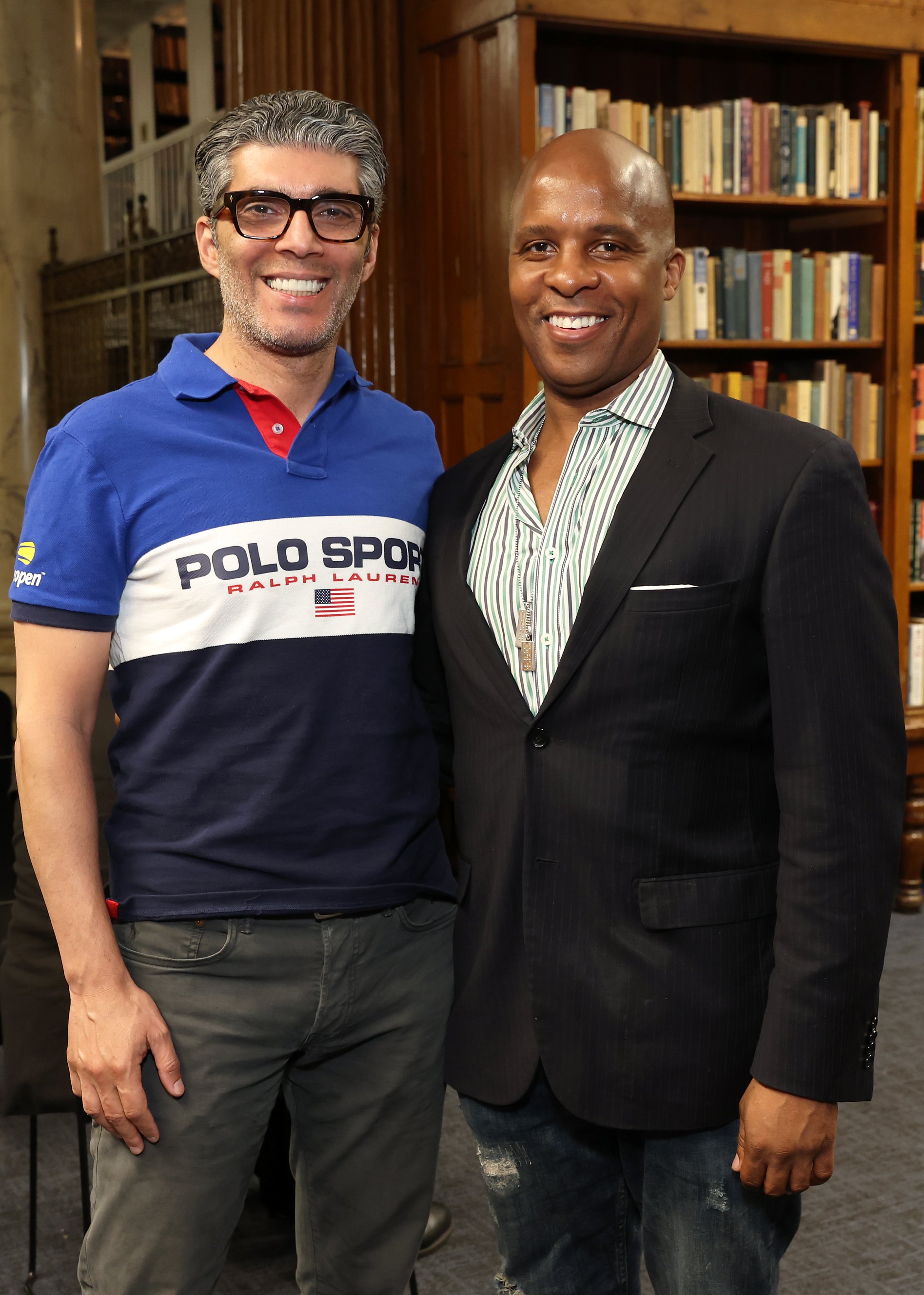
Submitted by Melody Benloss, Recording Secretary
Photography by Monica Schipper
